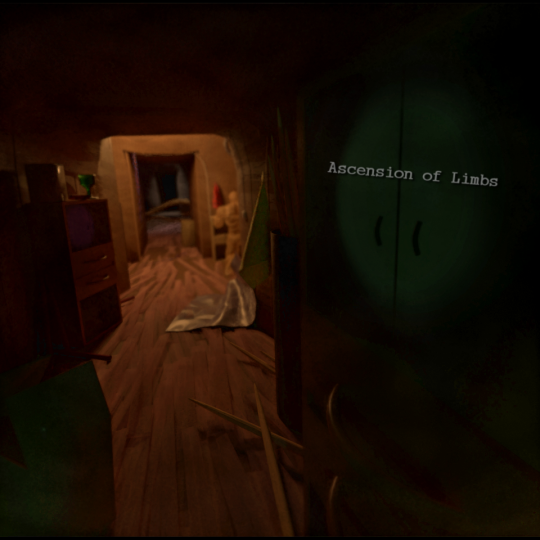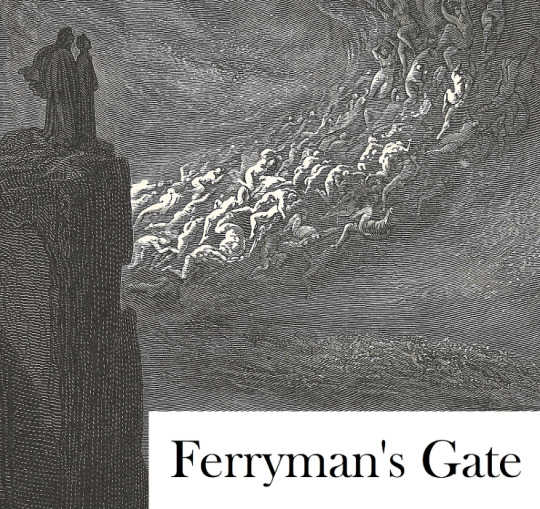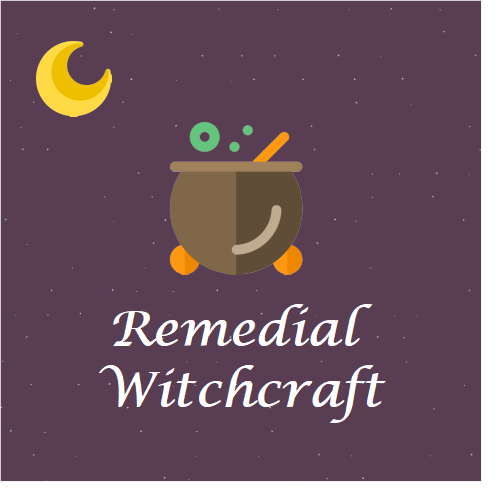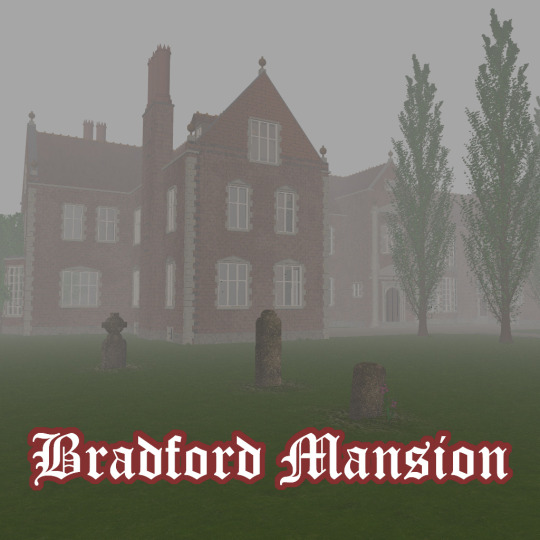Text
Review: The Turnip (and) The Pinecone

Both of these games caught my eye because I think their cover art is very successful.
Cover art has been a weak point for IF games forever, in my opinion, but as of late the quality has gone way up. I like what Pentangelo is doing here, with having close crops of historical artworks and some nice typography. The icons for the pinecone and turnip are great, too.
Ok, so what about the actual games?
These both strike me as very good first attempts by a debut author.
Pentangelo clearly knows his way around language: the games are both well written, and while they’re short they have a nice eloquence about them. The new author feeling comes from the mechanics of the games, not the writing.
Both are written in twine, which is slightly modified from the default (some colors are changed around). One thing that irks me about twine is when it isn’t differentiated when a link provides additional detail or makes a choice. I’ve seen some ways around this (different link formatting, using end notes or asterisks, etc.,) which I think add another layer of comfort for the player. There are times where perhaps this lack of distinction would be encouraged by the story, but neither of these games have the kind of frenetic energy that would warrant it.
Spoilers:
I expect there will be some dialogue as to whether or not these games are really interactive fiction, because there isn’t much meaningful choice in either. In Turnip there’s none, in Pinecone there’s a little.
For me, i don’t really mind there being a lack of meaningful choice as long as the story is well written, which I think both of these are.
My hope is that Pentangelo will continue writing, I like the polite surrealism of both pieces and I thought the quality of the prose was very high. I would be very interested to see him write a parser piece -- I think his writing would fit better with that medium than Twine’s. Tight, polished snippets of description seem to live better in a parser medium, where they can be revealed at the player’s exploration -- in Twine, where they’re so noticable, having the same amount can feel like a chore to get through.
Overall, very admirable work, and I’m excited to see what else Pentangelo puts out.
0 notes
Text
Review: Ascension of Limbs

Ascension is very, very good. I expect it to place pretty high this year. (Sidenote: perhaps, in this year of horrors, a horror game can take first place?)
There’s not a lot I want to say about it before the fold, because I think this is a game best played blind. What I will say is that it has a great mechanism that is a neat little mash-up of hypertext and parser. It’s worth playing for that alone, and how well it introduces you to its toolset.
Spoilers:
I played for about two hours, and in that time I reached 3 endings: Community, Cash (is that what it was called?) and Infamy.
I thought Ascension was great. I think it’s hard to pull off a management game in a parser setting, but Akheon does a great job. The writing is wonderful, and I was delighted to hear about each object.
I think what Akheon does really well here is balancing scary, Lovecraftian/Blair Witch stuff with banal, realistic stuff. You can sacrifice cultists and douse for cursed objects with a barbed wire horseshoe, but you can also hire some friendly help and talk to your regulars and promote your store in the local paper. There’s a wonderful balance here of having objects that can help you and ones that can hurt you and many that seem to do both.
The biggest flaws for me were 1. the games balance and 2. issues with repetition.
As to balance: the first half of the game was very well balanced, at least in my experience. I was struggling for cash at an acceptable rate, and while I didn’t go broke I came very close a handful of times. Once I got to about 20 cash, though, money was no longer an issue and I could bankroll to my heart’s content. I think this is totally acceptable for an ifComp game -- they’re only supposed to be two hours -- but for a future release I’d love to see some more late game content, financially. What did throw me up was infamy. I got to a point where I was at 9, and no matter what I did I kept failing to it.
The other issue, balance-wise, was that the creep was constantly at my store. As soon as I threw him out, he’d come right back. I’m not sure if this was purposeful, but it was really annoying. I would’ve loved to be able to tell my hired hand to stand guard at the door.
For repetition: I noticed that I kept getting the same wares over and over. My store had an incredible backlog of porcelain dolls, antique marbles and bent candelabras. Part of why this was so noticeable was that the unique objects felt so, well, unique. I think I would’ve preferred for the wares to be a little vaguer, Fallen London style, just so the repetition of them wasn’t as noticeable.
Overall, I was super happy with this game and would strongly recommend it.
0 notes
Text
Review: Ferryman’s Gate

I will admit that I am a sucker for the “inheriting a mansion from a distant relative genre”, one that is incredibly prevalent in the world of Interactive Fiction. I am still waiting to inherit a rambling victorian mansion in rural Vermont but I am sure it will happen any day now.
Ferryman’s Gate caught my eye initially because I liked the cover art. I think this is a good way to do cover art if you don’t want to hire an artist: pick a good etching and throw some nice serifed type on there and call it a day. Classy and inoffensive.
I didn’t finish Ferryman’s Gate, I got stuck due to a bug and didn’t feel like restarting the whole thing over to try again.
Ferryman’s Gate strikes me as a very good first game. It’s the only thing on Maycock’s IFDB page so I’m guessing it is the author’s first (though I am sorry if it’s not!). There’s just some things that call out a newbie author: having default responses, not having a description of the player, some weirdness with objects and takeability, having a maze puzzle.
However, there’s also a lot of good polish going on here: the NPCs are nicely implemented, and there’s a lot of them -- you have 4 family members, as well as a maid and a butler. The map is large but sparse in details, although the language is always good. And no typos! Which is a very good trait in a game about English grammar.
Ferryman’s Gate presents itself as a “a thinly-veiled attempt to teach comma rules without feeling ‘educational.’”, a goal I think it misses, slightly.
It certainly teaches comma rules, that’s for sure. As someone who’s only language is English, I find it easy to identify grammatical errors but hard to pin down the logic of what makes them wrong. I enjoyed learning more of the technicalities, which I am certain that I will forget as soon as I drink another glass of wine.
However, it feels very, very educational. Right in the beginning you are handed Uncle’s four-chapter diatribe on Correct Comma Usage, which reminded me a lot of reading the book in the Anchorhead Library, except much more boring.
Overall, I think this was a great first effort. With a little more beta testing, I think this could’ve been even better, but for a debut piece you could do far, far worse. I’m excited to see what else Maycock writes.
Spoilers below:
Alright, spoilers:
One thing that I found slightly off-putting is that the game is pretty devoutly Christian, in a way that I found a little disarming. Uncle writes of both of you being good Christians (although he really doesn’t know who you are, as he is writing in a letter to an unknown heir) and that you will take over his charge of standing guard at the Gates of Hell. I forget his exact verbiage but he also asserts that both of you would doubtless go to Hell because you are both sinners (if not but for the grace of God).
Most IF, in my opinion, falls into one of two camps: games where you play a distinct protagonist (Sting of the Wasp, Varicella), and games where you are the protagonist (most of Veeder’s work, and Infocom’s as well).
Ferryman’s Gate seems to fall into the second camp. This makes it weird, then, to be told I am a devout Christian, when I can most assuredly say I am not a devout Christian and that most devout Christians would probably put me on the other side of Uncle’s gate.
It could be very interesting to have Uncle be a devout Christian if we were able to question his beliefs, but it’s assumed that we feel exactly the same way. If I was playing a more distinct character, this wouldn’t be an issue for me, but I find being evangelized to in a parser game about grammar a little off-putting.
As far as not finishing: I got to the enchantment room section when I found I was missing Plate I. I know I had picked it up from the walkthrough, but I couldn’t find it anywhere in the house or my inventory. To make matters worse, the walkthrough is just a hints page (dear authors, it really would not be ‘too tedious’ to make a walkthrough! Everyone else does it!!!) and while it says what locations have a plate, it doesn’t say which plate is where. After searching the estate for a while, I gave up.
Other little things:
Listening when the radio is on does nothing; the woods are unimplemented in the library despite them being described; examining the floor of the utility closet brings back “Which do you mean, the floor or the closet floor?”; examining the strange maps brings “You see nothing special about the strange maps.”.
Final note: xyzzy response was included! I love that.
1 note
·
View note
Text
Review: Sugarlawn

Finally, some good food.
Here’s a classic run-around-and-grab-stuff treasure hunt in a mansion, although Spivey elegantly bypasses any questions of the ethics of stealing someone’s stuff by framing the entire game as reality television, complete with a host providing color commentary on Louisianan architecture.
The game has a lot of lock and key puzzles, some that require the use of a good-old pen and paper, as well as an interesting mechanic of treasures being worth twice as much if placed in the room they belong. I think this does a pretty good job of adding an additional layer of gameplay -- it’s easy to drop off the loot in the room as you run around completing other puzzles.
This frame story also includes the additional caveat of a thirty minute timer, which gives the whole game a sort of Hollywood Hijinxs meets Captain Verdeterre’s Plunder feel. This I was less jazzed about. Building a parser game around replayability is tricky: too short and it isn’t worth replaying, too long and replaying seems arduous. Sugarlawn hits right at the “almost too long” mark. Once I finished the game for the first time I immediately started again, but after realizing I hadn’t noted treasure locations the first time it felt more like a chore.
If you haven’t played Sugarlawn yet, I highly recommend it, with this advice -- take detailed notes the first time.
SCORE: 8
1 note
·
View note
Text
Review: Break Stuff

cover review: fitting for the game, but the type gets lost
I am usually all about a strongly characterized PC. I like to make choices I think they would make, I enjoy the roleplaying aspect. It also helps me to do things I normally wouldn’t -- normally when I play games I take the “nice” option for dialog or actions because I’m afraid of soft-locking myself out of future content. Having a PC that’s explicitly mean makes it easier for me to make mean decisions, for example. The PC in Break Stuff is definitely their own person, they have memories, things they suffer from, etc.
Ok, so where’s the breakdown in Break Stuff? (how bad is that pun? Should I leave it? Did you enjoy it?)
I think it’s really hard to build sympathy for a character in a short amount of time, and BS goes so quickly into deep topics (death, self-harm, suicide, etc.) that it can end up feeling like melodrama.
It’s a really hard line to walk, and I think where BS stumbles is that it took me till act two to get to know the PC. We know about their breakup from the get-go, but we don’t get into anything more until the breaking begins, and we only break three things before the end game.
On my first playthrough the ending felt a little mawkish to me, it took a few more sessions in order for it to feel meaningful. I played BS three times, in order to break everything provided, and by my last playthrough I liked it a lot more.
Spoilers
Here’s the thing: the climax of BS is all about self-harm, which I think is a very serious topic.
The final act gives you three options: to call your friend, to get a bandaid, or to continue to injure yourself (this choice rendered in blood red).
The fact that the last option is given is off putting to me.
By making self harm an option rather than a set event, it reframes it not as something you might suffer from but rather a fault of willpower: I can cut myself just as easily as I cannot. Having three options makes it even more uncomfortable because they all seem to be equally as easy: two thirds of me wants to help myself, only one third of me wants to hurt. It puts me, the player, in a weird scenario as well -- now that I’m in control of the PC, it has a kind of voodoo-doll feeling, that the only reason I would choose to self harm would be as an act of malicious intent against the PC, clearly against their own will.
I think there’s a couple ways this could be averted, the crux of which would be to make it much harder to choose the ‘help’ options than it is to choose the ‘harm’ option. I’m thinking of the flashlight scenes from My father’s long, long legs, where here perhaps the help options must be searched for and revealed while the harm option is always visible; or perhaps the help options aren’t clickable at all, like the grayed-out options in Birdland.
Here’s what I liked about BS: the writing was very good, as was the dialogue. I enjoyed the various anecdotes and I liked the variety of them, I think the strength of twine is being shown 9 different options and getting a fleshed-out response to whichever you choose, and BS did that excellently.
With any twine game, the question in the back of my mind is always whether it’d be better as a linear narrative. With BS, I’m right in the middle. I wish that I had more direct action in actually breaking stuff -- I would have liked to click a link like “smash glass” each time I smashed one rather than just clicking a link choosing to smash the glasses and then reading about how I smashed them in a long paragraph afterwards.
Overall, I still don’t know exactly how much I liked Break Stuff. The parts I liked I really liked, the parts I didn’t I really didn't. I’m interested to see what other people make of it, and I wouldn’t be surprised to change my score.
SCORE: 6
1 note
·
View note
Text
Review: Remedial Witchcraft

cover review: plummy (let’d ditch the lucida)
How many games are there now about students of magic?
Despite their proliferation, it’s a very enjoyable genre. I’m not complaining. There’s something about magic systems that is both ubiquitous and arcane, and I am consistently interested in what authors choose to be magic words.
Remedial Witchcraft is a tight game: in a genre full of excess, it does a good job at keeping witchcraft manageable. There’s only a few spells and a handful of locations, and for the most part the puzzles are fun and well-hinted.
There’s some good atmosphere going on here too -- the world building is (thankfully) light on exposition, and the writing is clear, if a little laconic.Spoilers
If there’s one thing about RW I would ask for, it’s just more. The cauldron interaction is so well fleshed out for using it only once, and the rock/wand mechanic has a lot of untapped potential (I was hoping to throw it through the witch’s bedroom window, alas).
I also had a number of small bugs playing through my downloaded version -- the teapot description mentioned it being captured even after I freed it, the teleportation circle in the room didn’t work, and I had to resort to the walkthrough to get the word ‘dispul’, which never triggered for me.
Looking at the updates afterwards, however, it seems as though these problems have been fixed. Perhaps only the online play file was changed?
As to the end game -- it was so unexpectedly glum after such a so-far charming experience I’m wondering if perhaps there’s more than one ending? If you managed to get a happier one drop what you did in the comments, I’d love to see it.
Overall, I really liked RW. It’s my favorite of the competition so far and I had a great time with it. I look forward to seeing what dgztiea puts out, and for a first published parser game, they should be very proud.
SCORE: 7
1 note
·
View note
Text
Review: Bradford Mansion

cover review: I will admit that I am digging the sims 2 vibes here although the sad blackletter is killing it for me
For the shockingly few amount of times I have found myself perambulating through mysterious mansions in real life, I find myself doing it almost constantly in text adventures. That’s quite alright, though -- I am a sucker for a good mansion exploration game. I love sneaking through virtual houses, taking anything not fixed in place in the name of, um, finding a will, apparently.
Bradford Mansion is definitely an old school type experience. Expect almost nothing to be implemented, expect to run it through the terminal of your mac for some reason, expect FILL CUP WITH TAP’ to tell you that ‘the cup cannot be filled’ but USE CUP WITH TAP works fine. I do appreciate the lack of deaths possible -- it’s merciful on a zarfian scale.
Unfortunately, Bradford Mansion is filled with bugs. Writing this I am debating some sort of terminator/pest control pun but I have decided against it.
Sometimes you can USE things, sometimes you have to play a little guess-the-verb: PRY or LUBRICATE (really). On attempting to read a book in the library I was told that “the book isn’t something you can read”. A number of puzzles broke for me because I didn’t do them in walkthru order -- speaking of which, I could never have gotten to the end without.
There’s a secret storyline here that I caught glimpses of but never truly found, which is too bad. I think Bradford Mansion has some good things going for it, but a sorry lack of beta testing. With some more implementation and some technical fixes, this could’ve gotten a better score.
SCORE: 3
TIME: 1h20m
1 note
·
View note